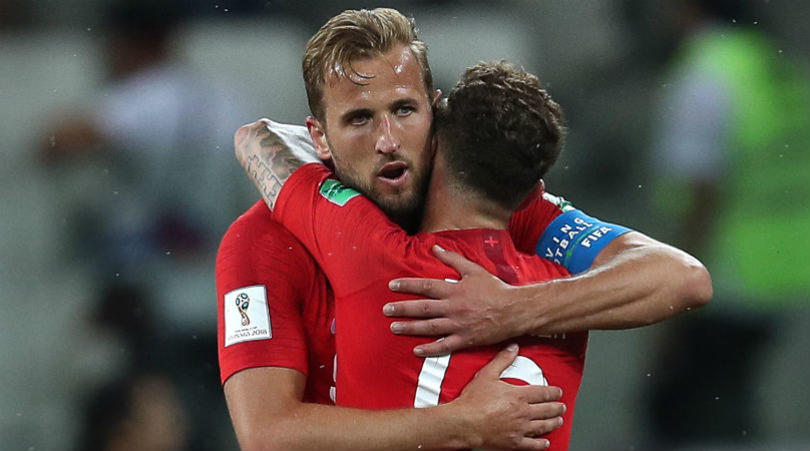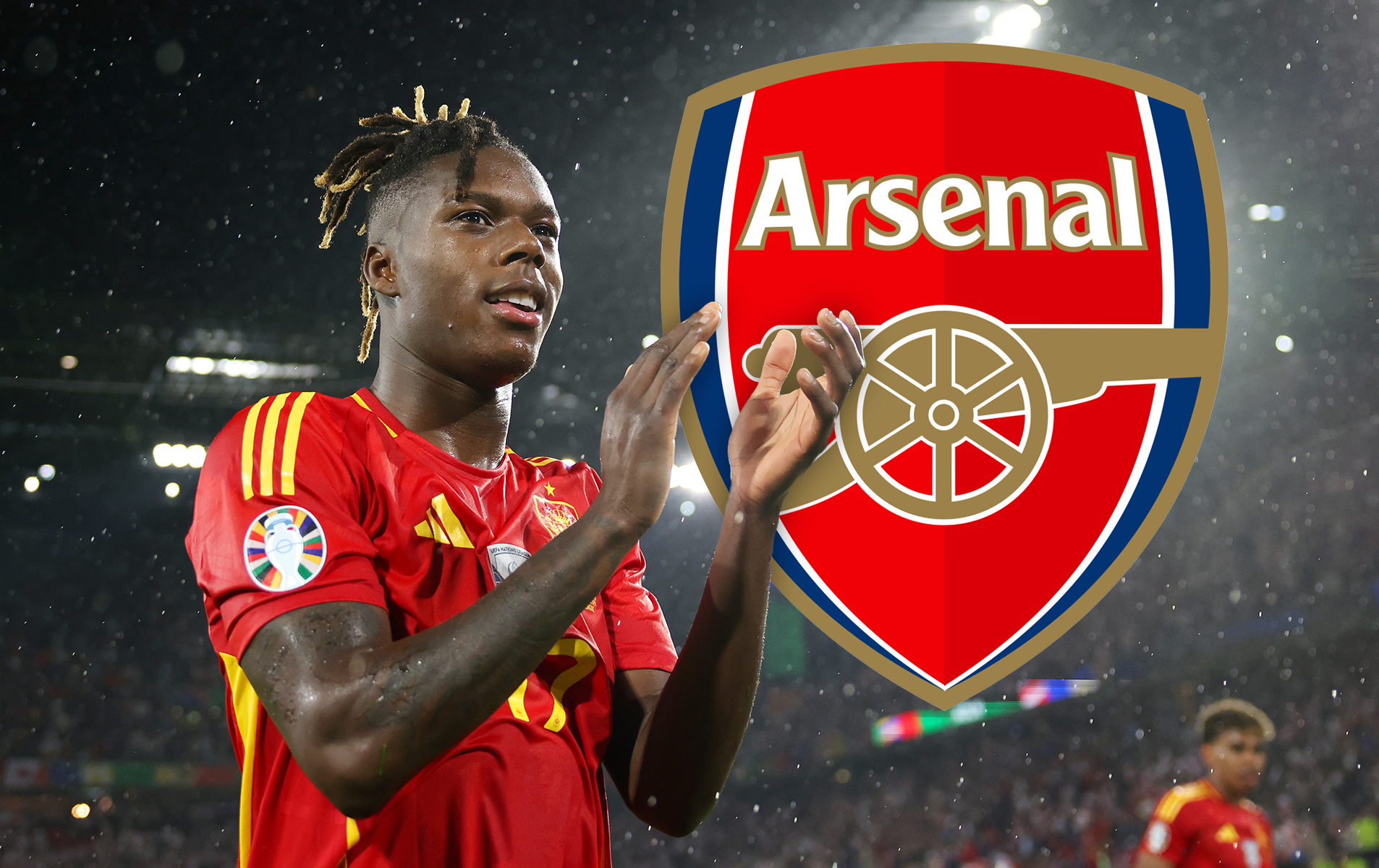Ranked! The 13 most disappointing players of the 2018 World Cup so far
From superstars yet to find form, to highly-rated youngsters struggling to step up: they all feature in Paul Sarahs' take on the early flops of Russia 2018
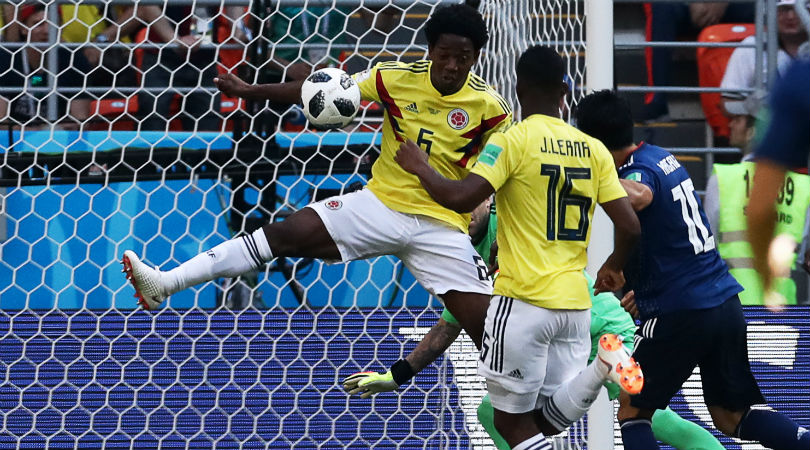
13. Marwan Mohsen
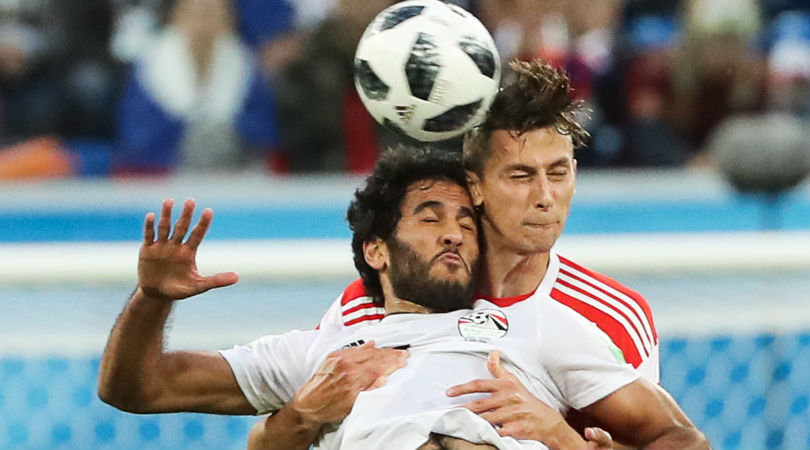
Egypt have been hugely disappointing in their two matches so far, with as many defeats eliminating them from the competition with a round of matches spare. The injury and fitness issues of talisman Mohamed Salah have clearly been an issue, but the Pharaohs are not a one-man team.
The likes of Ramadan Sobhi, Mahmoud Kahraba, Trezeguet and Mohsen failed to pick up any of the slack, with the Al-Ahly striker particularly poor in the opening two matches – admittedly not helped by Hector Cuper’s ultra-conservative style. Still, his performances have been especially disappointing.
12. Giorgian De Arrascaeta (Uruguay)
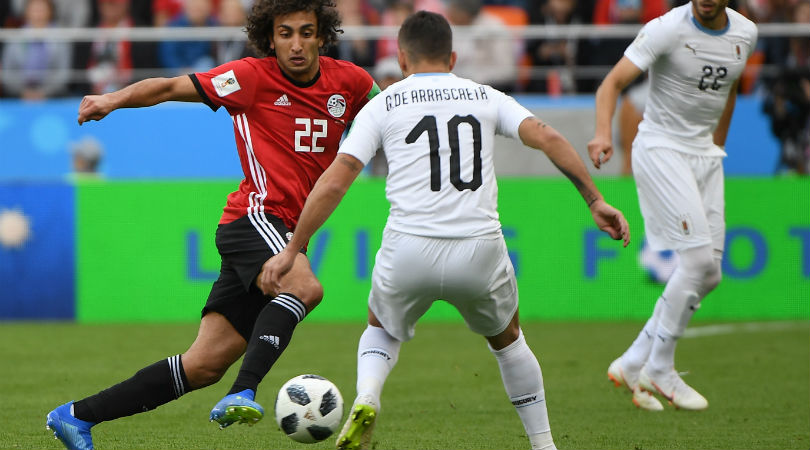
Cruzeiro schemer De Arrascaeta’s form in the early weeks of the Brazilian season was immense, leading to the 22-year-old being linked with a move to Europe – namely, Monaco. With Luis Suarez and Edinson Cavani ahead of him to create for, and as solid a base as this World Cup has in behind, it was thought De Arrascaeta could take the tournament by storm – particularly with Uruguay being drawn in the weakest group alongside Russia, Saudi Arabia and Egypt.
While tidy enough in the hour of football he’s played at the World Cup, he has been disappointing – much like Uruguay as a team. The Celeste have already made it into the knockout stage of the competition but will need to improve massively if they’re to be a genuine threat in the latter stages – as will De Arrascaeta.
11. Robert Lewandowski (Poland)
Get FourFourTwo Newsletter
The best features, fun and footballing quizzes, straight to your inbox every week.
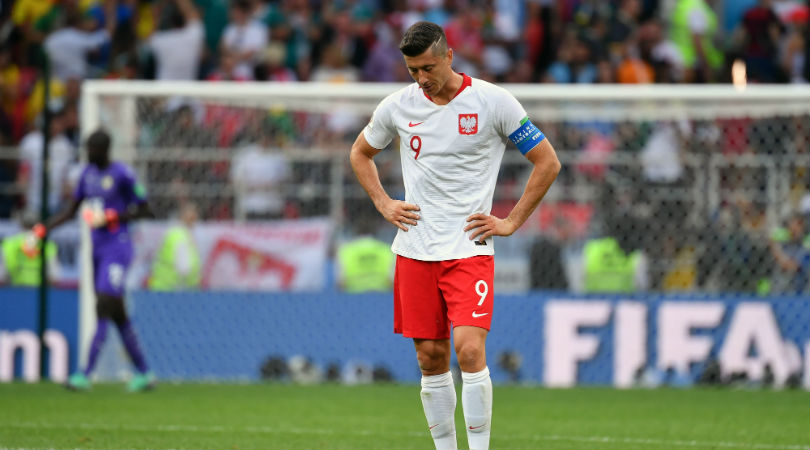
Bayern goal-getter Lewandowski is reportedly a target for Chelsea and Champions League winners Real Madrid this summer, and his performance in Poland’s opener against Senegal suggests his mind may be elsewhere.
Coming into the tournament, the free-scoring striker was expected to be the difference for a Polish side edging towards the older end of the scale. But his impact was minimal, with one effort – a weak strike from a free-kick – the sum total of his match.
It was a poor return from arguably the world’s best pure No.9 of the last few years, and Poland will need much better from their talisman should they want to extend their stay in Russia beyond the group stage.
10. Timo Werner (Germany)
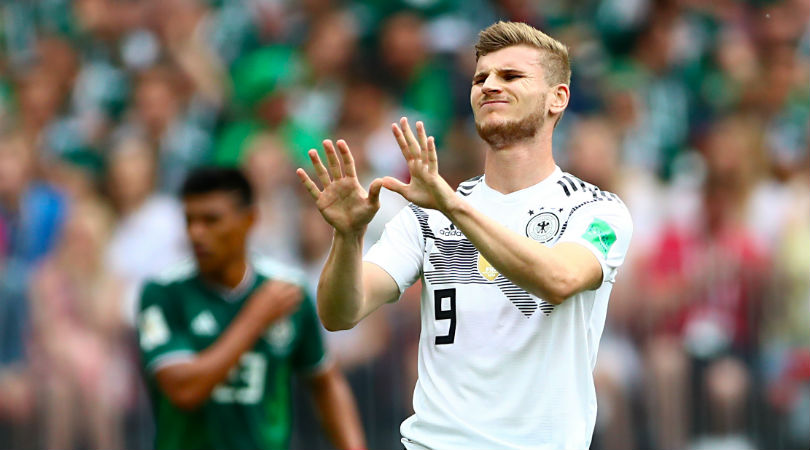
Germany won the World Cup in Brazil in 2014 without a first choice No.9 in the team, and a 36-year-old Miroslav Klose well on his way to international retirement.
Four years on, Werner has forced his way into the world champions’ starting XI, having scored three times in the Confederations Cup a year ago and three more in qualifying for the World Cup. Add to that 34 goals in 63 games for RB Leipzig over the last two seasons, and Germany have an ideal replacement for all-time World Cup marksman Klose.
But given what was expected of Werner, his performance against Mexico was poor. Still, there’s plenty of time for him to show what he can really do.
9. David de Gea (Spain)
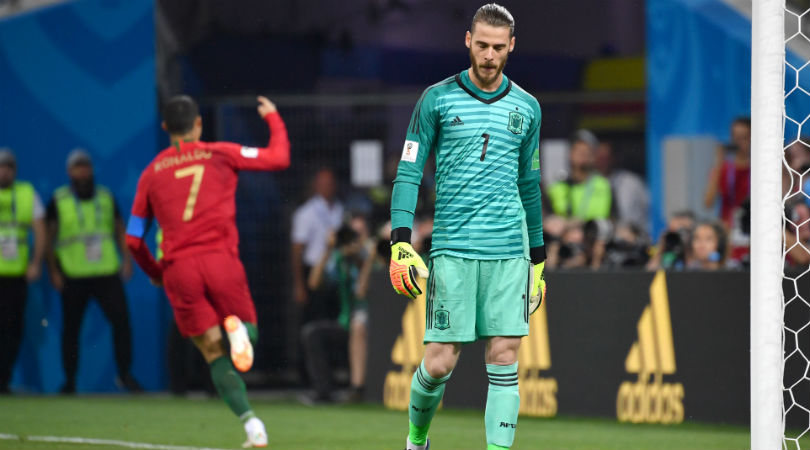
The De Gea of Manchester United is a world away from the De Gea of Spain, with his goalkeeping style seemingly much more suited to a more defensively-minded team. While his status as one of the best in his position is without question, his performance against Portugal was a far cry from the match-winner we’ve seen season upon season in the Premier League.
Cristiano Ronaldo’s second goal was easily avoidable and turned the game back into Portugal’s favour at a crucial time. “I'll keep training and try to do things right. I haven't killed anyone,” he shrugged post-match.
8. Juan Antonio Pizzi (Saudi Arabia)
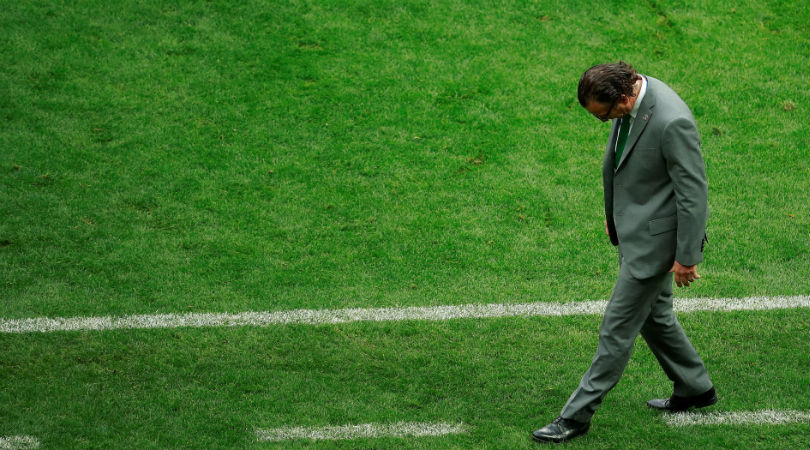
OK, not a player here, but a manager of Russia 2018. Argentina-born former Spain striker Pizzi took over the head coach role at Saudi Arabia having failed to guide two-time reigning South American champions Chile to the World Cup.
But after been given a second chance to coach a team at the biggest tournament on the planet – and with a relatively kind group to try to negotiate – Pizzi tried to take the game to hosts Russia in the opening match, resulting in the Green Falcons getting hammered 5-0.
Defensively they were a shambles – and that’s on him. They were better in the second game against Uruguay, but lost 1-0 anyway and are out after two matches.
7. Sami Khedira (Germany)
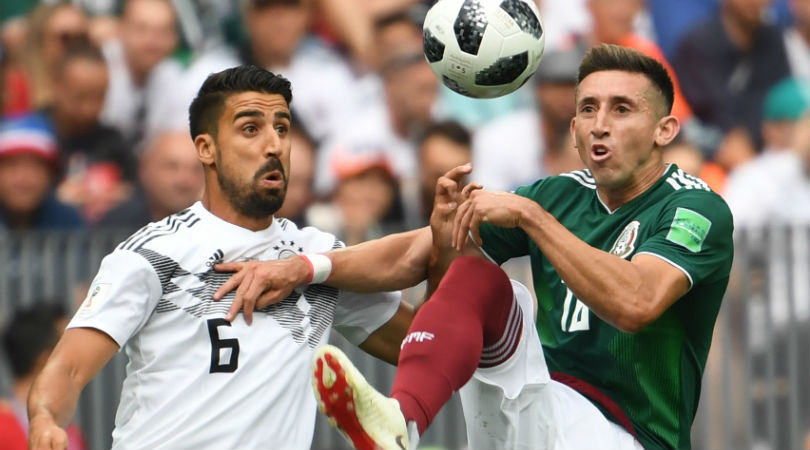
Juventus midfielder Khedira lasted an hour before being replaced by Joachim Low in the opener against Mexico, but by then the damage was already done. Hirving Lozano’s first-half goal proved to be enough for the Mexicans to take all three points against the World Cup holders, and Khedira struggled desperately at the heart of the midfield – Hector Herrera and Andres Guardado were superior in every way.
Not since 1962 and Pele’s Brazil have a team defended their World Cup title. If Germany are to do so they will have to improve dramatically and quickly – another negative result may see them go the way of previous champions and fall at the first hurdle.
6. William Troost-Ekong (Nigeria)
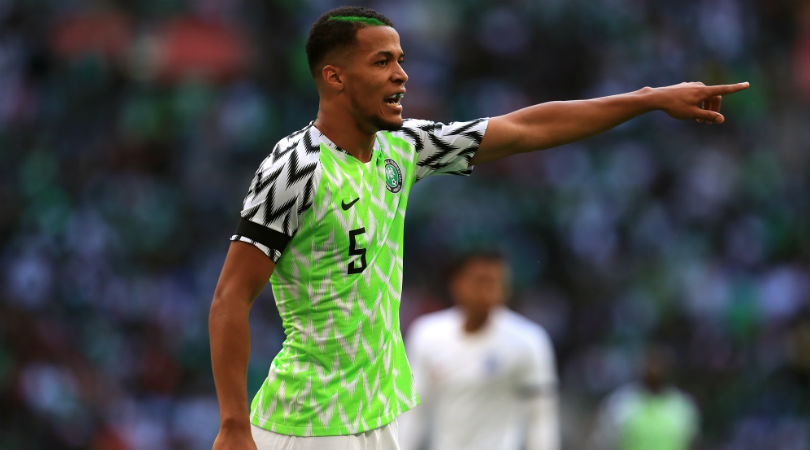
Nigeria centre back Troost-Ekong stood out for the Super Eagles in their World Cup opener against Croatia – for all the wrong reasons. The Netherlands-born Bursaspor defender frequently gave the ball away, undoing much of the good work from Nigeria’s double pivot of Wilfred Ndidi and Oghenekaro Etebo ahead of him.
With matches against Iceland and Argentina to come, Nigeria still have a chance of making the knockout stages, but their hopes of making an impact at the tournament took a hit with the 2-0 defeat to Croatia – mostly because of the manner of it. A huge improvement is required for a young, talented side to progress.
5. Angel Di Maria (Argentina)
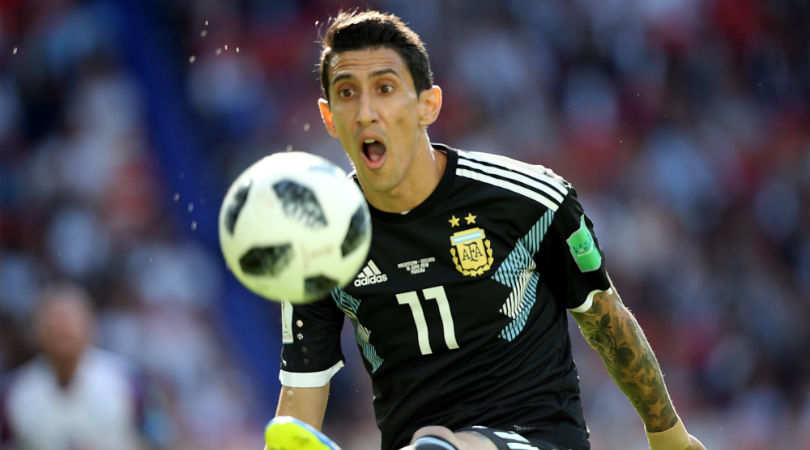
When Argentina struggle, it’s Lionel Messi who gets the majority of the criticism – something that persisted even when the Barcelona man was awarded the Player of the Tournament prize in Brazil four years ago.
Messi actually played quite well against Iceland, penalty aside, but wasn’t helped by PSG winger Angel Di Maria, whose place in the side must surely be under serious consideration by boss Jorge Sampaoli.
A 1-1 draw with Iceland isn’t terminal for Argentina’s chances, but with Nigeria and Croatia to come it would have settled some nerves had they managed to pick up all three points against the World Cup newcomers in their opening match.
4. Christian Cueva (Peru)
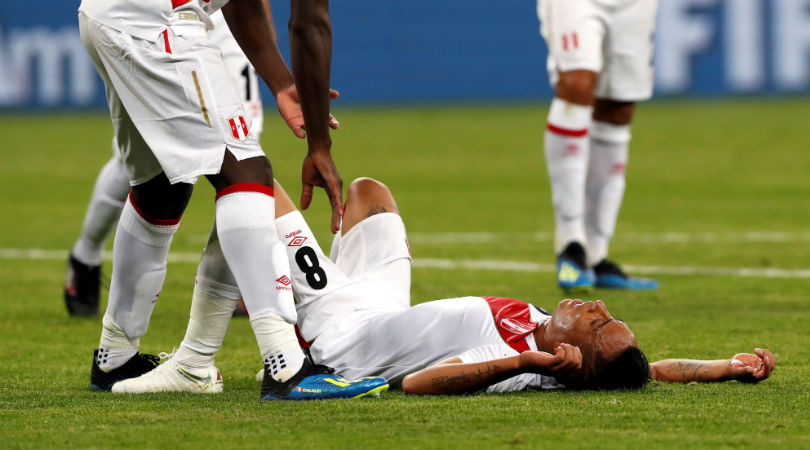
Thirty-six years since they last qualified for a World Cup, Peru headed to Russia full of expectation with the unyielding support of a nation. They sold the sixth-highest amount of tickets, with one genius supporter reportedly putting on a couple of stone to qualify for a disabled ticket after missing out in the draw.
Los Incas had a decent chance of making the knockout stage too, having been drawn alongside France, Denmark and Australia, and with their legendary forward Paolo Guerrero cleared to play following a doping ban. But it was imperative that they got off to a strong start against the side many expected them to be in direct competition with for second place.
Sadly for Peru and the neutrals seduced by their passionate supporters, it didn’t go well. Cueva won a penalty in first-half stoppage time – then skied it. Peru lost 1-0.
3. Aziz Bouhaddouz (Morocco)
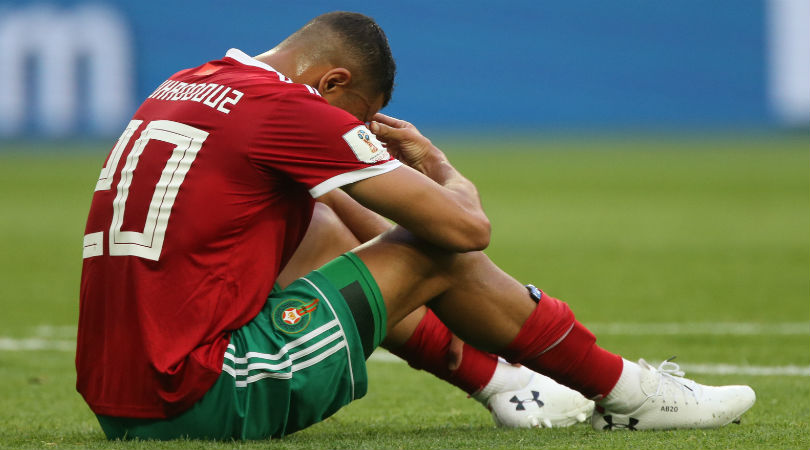
With 13 minutes remaining in Morocco’s opening match against the weakest team in the group, boss Hervé Renard looked to St. Pauli striker Bouhaddouz to change the game in the Atlas Lions’ favour.
With Portugal and Spain to come, Renard knew a draw against Iran wasn’t good enough, so tried to force the issue by bringing on Bouhaddouz for one last push. But he wasn't anticipating his substitute heading a 95th-minute free-kick beyond his own goalkeeper and handing all three points to Iran.
The striker wasn’t trusted off the bench in Morocco’s second game as they toiled against Portugal, drawing another blank and ensuring an early exit from Russia 2018.
2. Nikola Kalinic (Croatia)
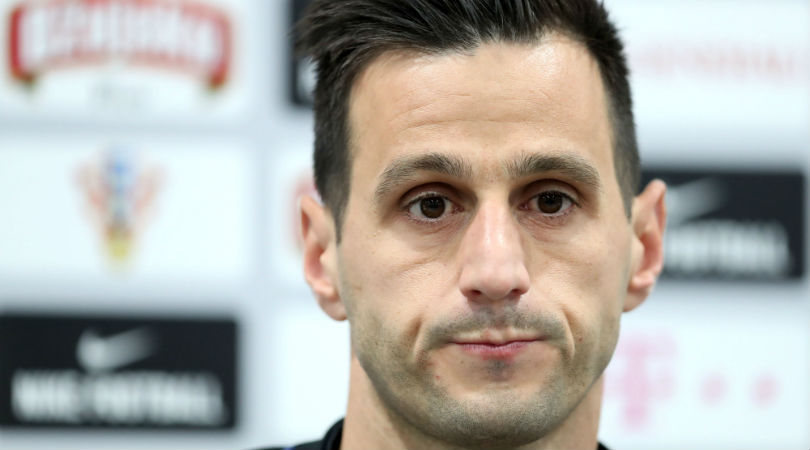
Croatian striker Kalinic makes the list without even kicking a ball, which really is going some. After he'd reportedly refused to come off the bench in the victory over Nigeria citing a back injury, Zlatko Dalic sent the Milan striker home from the biggest show on earth.
“The same thing happened during the Brazil friendly in England, as well as before the practice session on Sunday,” Dalic reasoned. “I have calmly accepted that and since I need my players fit and ready to play, I have made this decision.”
Kalinic probably wishes he’d grimaced through now, but the 30-year-old may well have prematurely ended his international career after picking up just 41 caps and scoring 15 goals – including three in qualification for the World Cup. At least while Dalic is around.
1. Carlos Sanchez (Colombia)
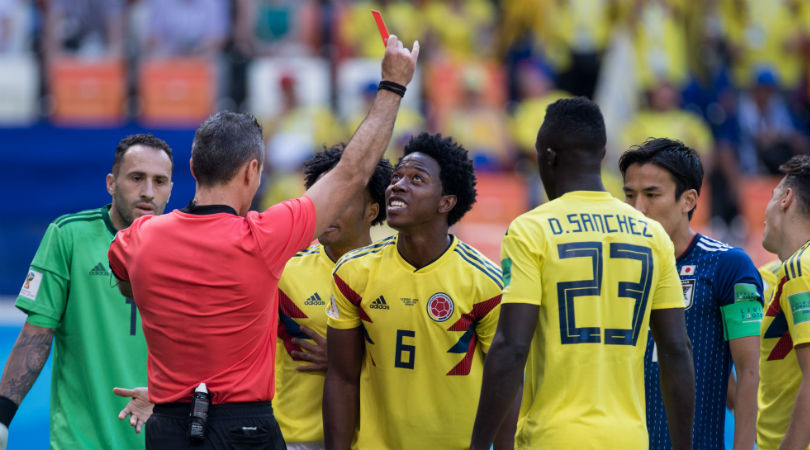
There really isn’t a great deal to say about Sanchez’s performance in Colombia’s opener against Japan. It lasted three minutes, led to the opening goal for Japan and put an end to Colombia’s tactical plan for the match – Juan Cuadrado was replaced on the half-hour mark as Jose Pekerman looked to limit the damage.
Reflex reaction or not, Sanchez’s best Luis Suarez impression surely cost his country a result in their opening match against the weakest team in the group. It leaves Colombia in a difficult position with Senegal and Poland to come.
